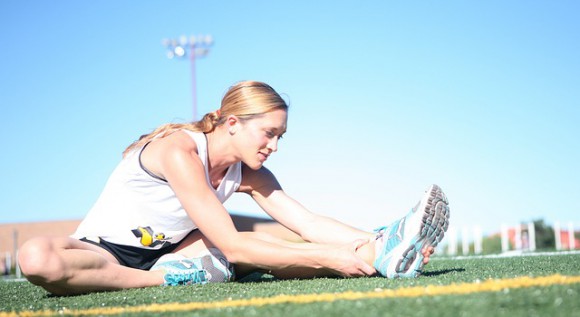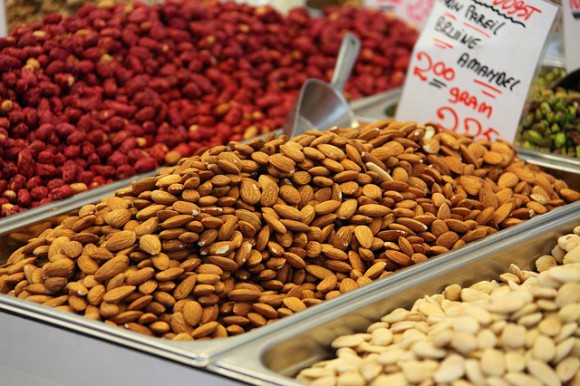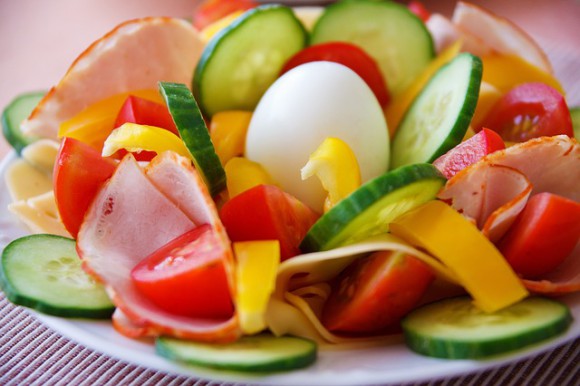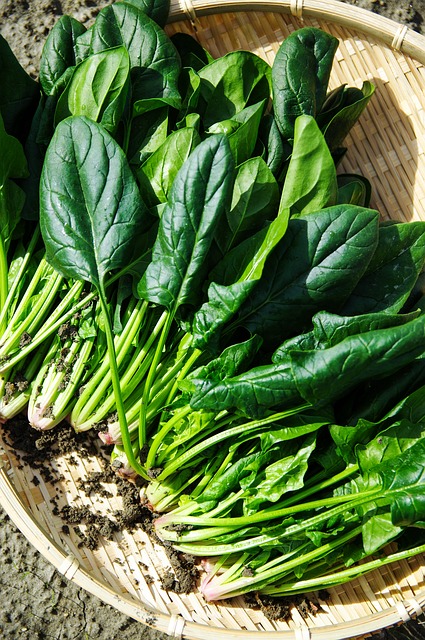
Many people experience muscle cramps at some point in their lives. Sometimes it happens as people age or it could happen during extended exercise or during rest especially for pregnant women.
There are many natural supplements that could help reduce the rate of occurrence of these cramps in people but they only work if deficiency in that particular nutrient is the cause of the cramps.
In this post, I will be talking about the reasons people have muscle cramps and the kind of nutrition they can adopt in order to treat or prevent this problem. I have had this problem in two of my pregnancies and this time around I decided to do some research. I found out that it is better to acquire much needed nutrients through food than through pills.
What are muscle cramps?
Muscle cramps are painful involuntary contractions of a muscle or group of muscles. Muscle cramps usually occur at night when the person is at sleep and usually occur more on the legs and feet muscle.
There is no clear explanation as to why muscle cramps occur but there are certain risk factors such as dehydration, pregnancy and electrolyte imbalance that are associated with it.
It is believed that in addition to proper hydration and nutrition, stretching exercises can help relieve muscle cramps.
Risk factors for muscle cramps and natural treatments/preventive measures.
Low serum magnesium levels
Severe magnesium deficiency (hypomagnesaemia) is associated with muscle cramps for some people. For these people, supplementing magnesium helps reduce or stop the occurrence of muscle cramps.
I had serious recurrent muscle cramps about two month ago. It happened mostly at night especially when I slept with my legs folded. I was so scared of folding my legs that I didn’t sleep well through the night, for a week.
I was bent on finding a solution for this and after reading several academic journals, I learned about magnesium deficiency and muscle cramps. I also learned about foods that were rich in magnesium, some of which I tried and noticed significant improvements. I had fewer cramps until it stopped completely. I have not had one for about two weeks now.
A diet high in magnesium needs to have at least 400mg of magnesium daily. Below is a list of some foods rich in magnesium;

| Foods | Amount | Magnesium in (mg) |
| Regular milk | 1 cup | 32.8 |
| Oatmeal, cooked | 1 cup | 57.6 |
| Rice, enriched with no added salt | ½ cup | 9.3 |
| Sirloin cooked | 1 oz. | 8.8 |
| Veal, lean, cooked | 1 oz. | 9.4 |
| Cod, cooked | 1 oz. | 9.9 |
| Shrimp, raw | 1 oz. | 11.9 |
| Ice creams, regular | ½ cup | 9.3 |
| Grape juice | 3 ½ oz. | 10.3 |
| Pineapple juice | 3 ½ oz. | 14.0 |
| Fresh orange juice | 3 ½ oz. | 10.9 |
| Tomatoes juice | 3 ½ oz. | 11.0 |
| Asparagus, cut, canned, drained | ½ cup | 17.7 |
| Beets, canned, drained | ½ cup | 31.5 |
| Broccoli, cooked, no added salt, drained | ½ cup | 51.0 |
| Corn, canned, drained | ½ cup | 27.2 |
| Peas, sweet, canned, drained | ½ cup | 32.4 |
| Banana | 1 medium | 33.0 |
| Cherries, canned, pitted | ½ cup | 16.0 |
| Almonds, dry | ¼ cup | 105 |
| Brazil nuts, dry | ¼ cup | 80
|
| Cashew, dry, roasted | ¼ cup | 89 |
| Sesame seeds, roasted whole | 1 oz. | 101 |
| Sunflower seeds, dry | ¼ cup | 128 |
| Pineapple, canned | 1/2 cup | 17.5 |
Reactive Hypoglycemia

Reactive hypoglycemia is a condition where a persons blood glucose drops drastically after eating a meal high in carbohydrates.
Many people with reactive hypoglycemia suffer from muscle cramps. This problem is treated naturally by avoiding foods that contain caffeine, alcohol and refined carbohydrates. People with reactive hypoglycemia need to eat small frequent meals with adequate amounts of protein, B vitamins, magnesium and other nutrients.
Remember not to eat too much proteins at the expense of other nutrients. Fish, beef , chicken and nuts are good sources of protein. The B vitamins include thiamin, riboflavin, niacin, folic acid, vitamin B12 and B6, biotin and pantothenic acid.
Some food sources are a very good source of a particular type of B vitamins while others are rich in a variety of them. For example, dark green leafy vegetables, pork and ham are good sources of thiamin while milk and milk products like cheese are good sources of riboflavin. To read more on this topic, click here!
Low serum Vitamin E

Vitamin E has been showed in several studies to be very effective in treating nocturnal leg cramps and several other types of cramps. According to Alan R. Gaby a medical doctor, in his paper ‘Nutritional Interventions For Muscle Cramps’, “Of 125 patients with nocturnal leg cramps treated with vitamin E (d-alpha-tocopheryl acetate), 103 had complete or nearly complete symptom relief, an additional 13 had a moderate or good response, and 2 did not improve”.
Foods rich in vitamin E include;
- Wheat
- sunflower seed
- almonds
- hazelnut
- peanut
- spinach
Low serum Calcium levels

Low serum calcium levels have been associated with muscle cramps during pregnancy. Consumption of foods high in calcium can help with this problem. It is important however not to consume too much calcium because it could deposit in the muscles and cause pain. This usually happens when one take supplements and consume foods high in calcium at the same time. It is good to choose one and nutrition is best.
Dairy products are high in calcium. They include cheese, yogurt, egg yolk, milk and many more.
Muscle cramps are very painful and can make life very unpleasant. Natural methods like those mentioned above can help with this problem. It is not a one size fit all problem so what works for one person might not necessarily work for another.
I hope this post was helpful. Please leave a comment.
Reference
- Web MD, http://www.webmd.com/sleep-disorders/tc/nighttime-leg-cramps-topic-overview.
- Gaby, AR. “Nutritional Interventions For Muscle Cramps.” Integrative Medicine: A Clinician’s Journal 6.6 (2007): 20-23 4p. CINAHL with Full Text. Web. 31 Mar. 2016.
- Livestrong.com, http://www.livestrong.com/article/22253-foods-high-b-vitamins/
- National institute of health, https://ods.od.nih.gov/factsheets/VitaminE-HealthProfessional/#h3.
- Harvard health publications, Harvard medical school. http://www.health.harvard.edu/womens-health/calcium-beyond-the-bones
Cheers Denise.
Hi Denise,
That was a very educational article that you wrote which offered advice/natural remedies to help treat muscle cramps.
Being a former h.s./college athlete myself who ran track and throughout my life have continued to participate in activities to keep myself in shape, (bicycling mainly) I have had to deal with muscle cramps as well as pulls.
I’ve found that doing stretching and yoga exercises has served to prevent the occurrence of cramps as well as relax muscles before and following exercise.
Of course what you also addressed so well in your article was cramps that take place because of a lack of certain mineral deficiencies in one’s body. Stretching and yoga would not provide immediate remedies for those conditions. I thought it superb that you discussed changes in diet and the inclusion of certain food groups to help the person overcome those types of muscle cramps not associated with exercise.
Great article Denise and one that is highly educational for people to read who suffer from the type of muscle cramps that have to do with a lack of minerals in their bodies.
Sincerely,
Jeff
Hi Jeff,
Thanks for the encouraging words and for contributing to this discussion. Many athletes or people who exercise regularly will benefit from your experience and advice.
Thanks for the really good, informative article. I had a friend with Reactive hypoglycemia and their blood glucose would drop significantly after eating. It was always a big issue for him and he would have to be very cognizant of what he ate and how to treat himself if his sugar got too low. You do a great job at informing people who might not know what this particular condition is. Keep up the great work!!!
Hi Bimmerguy,
I am happy you found this post helpful. For more information on reactive hypoglycemia, you can click on the link in the post and it will take you to a different page focused on this topic.
Hello there,
thank you very much for your educational article. I’m playing soccer most of my time and I know how annoying muscle cramps can be. Drinking water and eating enough magnesium always helped for me. I didn’t know how many natural foods with magnesium are out there, so thanks a lot for your article!
Hi Fabian,
It’s amazing how much knowledge can change our lives. I am happy you found this post helpful. Please do me the favor and tell friends and family about this post.
Thank you very much for putting this article together! I always look for natural ways to cure anything so the information in your article would help me a lot. I agree changes in diet would help. I was not aware of the low serum Calcium levels and their effect on the muscle. So taking calcium supplements and eating food rich in calcium would cause muscle cramps. I think i know where my problem is:) Thank you!
Hi Lena,
There is a possibility of calcium depositing on your muscles and causing pain. This is usually associated with excess calcium in the blood but I have also learned lately that this can occur even if your blood calcium levels are ok. Science is kind of complicated but I will go with the old saying that “too much of a thing is a disease” and advice moderation when taking calcium suppliments.
Interesting article on treating cramps. For a long time I was getting quite severe cramps after a day in a hot roof at work or after sports activity.
It was suggested to me that could be from loss of fluids and also magnesium.
These days I regularly apply magnesium oil (chloride) to my calfs and thighs before a run. It has helped the problem tenfold and rarely get severe cramps any more, cheers Jamie.
Hi Jamie,
Thanks for the informative comment; it will help some readers. Muscle cramps are well … a pain and I’m happy you got rid of yours.
This is such a helpful article. I got muscle cramps a few times during pregnancy. It was so awful. I remember being ripped out of a deep sleep from the pain of a cramp a couple different nights. My midwife recommended magnesium, so I took a good supplement for that. However, I wish I would have gone with this list of foods you have! I now don’t like taking supplements for anything because I strongly believe we need the whole food in order to truly get the benefits. You live and learn, though, right?
I got cramps really bad when I was in basic training for the Army, too. We were always just told to drink water!
Hi Candace,
I admire your courage and devotion to your country for training for the army. They were right to tell you to hydrate but that alone in many cases don’t work. Good nutrition plus hydration is the way to go.
Great info on naturally treating cramps. I had some serious leg cramps get me at work, no fun since I am a server, and I cannot really pause for a cramp while carrying a tray of food! Turns out mine were due to dehydration and I was severely lacking in potassium. After some electrolyte therapy and tracking my water intake, I was good to go!
Hi Abrielle,
I’m happy you found a solution to your muscle cramp. In you place I probably will have gotten fired for dropping a tray on someone’s head.
Hi Denise,
This is a magnificent article on the most proficient method to dispose of muscle spasms with normal cures. As I have quite recently got out the armed force in the wake of being in the military for a long time these tips will help incredibly when I am working out.
Much thanks to You!
Yours Truly,
Carlton
Hi Carlton,
I am happy you found my post helpful. We can get almost every nutrient our body needs from natural sources as long as we know which ones they are.
Hey, there.
This article just caught my eye so I thought I would check it out just quickly. But actually there is some really great stuff about muscle cramps in here. I loved the chart breaking down the Mg levels in each food. I always thought bananas were the best to eat for that kind of thing. That’s why they always handed them out at my High School events. But turns out its sunflower seeds??!! And such a little amount will do you good. Wow! Thanks for the helpful info. I’ll be looking for more from you soon.
Hi Mmace43 ,
There are so many foods that have great nutritional value but are usually taken for granted. Many seeds, fruits and vegetables are packed with nutrients.
Don’t talk to me about muscle cramps because I’ve had a lot of painful ones. They have usually occured when I’ve been swimming and especially when I’ve gone to bed which are the worse ones that make you shoot out of bed, limping around the room in pain.
There really are some great foods here for treating cramps naturally, and even some of my favorite foods listed as well 🙂
This article will definitely come in handy, especially before I attempt swimming again.
Neil
Hi Neil,
I have heard many athletes complaining about muscle cramps. I think it has something to do with anaerobic respiration that occurs in the muscles after it’s oxygen has been depleted.
I have found out that eating the right foods, drinking plenty of water and getting enough rest can help with this. A massage can also help since it will stimulate blood flow to these areas thus increasing oxygen supply and removal of toxic waste especially lactic acid.
I hope this is helpful.